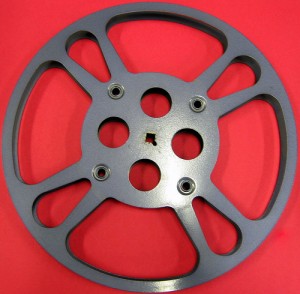Move with a Movie Review . . . GG Style
March 8, 2010 by GradingGirl
Filed under Blogging in the Classroom, Mini-Lessons
With all the spirit of the Academy Awards upon us, this week’s blog assignment will be for the students to write a movie review.
Move Us With a Movie Review
Here is what you need to include in your blog post:
Paragraph 1
Include the following: name of the film, stars of the film, basic setting ( time and place), and type of film ( comedy, adventure, drama, etc.)
Paragraph 2
Write a plot summary for the movie. Do not reveal the ending! Discuss at least 5 events and be sure to cover the entire scope of the movie except the very end.
Paragraph 3
Discuss one aspect of filmmaking. You may choose from acting, directing, editing, costume design, set design, photography, background music, or anything else you may think of. Be sure that you are specific and cite examples from the movie.
Paragraph 4
Discuss another aspect of filmmaking. You may choose from acting, direction, editing, costume design, set design, photography, background music, or anything else you may think of. Cite examples from the movie but obviously choose something different from what you discussed in the previous paragraph.
Paragraph 5
Give your overall reaction to the film as well as your opinion on the quality of the film. Last but certainly not least, include the grade you give this film based on your previous description.
Steps to Prepare for Writing This Post:
- Think about what you like and don’t like about a particular movie you have recently seen. Jot down your likes & dislikes in a free-write list.
- Next, write down as much information as you can about the movie (plot, aspect of filmmaking, etc.)
- Begin to articulate the information into your blog. Aim for about 600-700 words for the entire review.
- Save your draft and proof your work.
***Hint: Attempt to match the tone of your review with the style of the movie. For example, a humorous writing style would work well for a comedy, whereas a more serious tone would be good for writing a drama review.
Bringing Blogging to the Classroom #4
March 3, 2010 by GradingGirl
Filed under Blogging in the Classroom, Mini-Lessons
This is what I shared with my students before they wrote their first comments to each other’s posts:
Follow these simple rules when writing comments on your peers’ pages!!!! 
Rule #1 — Determine Your Reason for Commenting
Are you trying to get the writer’s attention? Do you appreciate the writer’s work and want to say thank you? Do you disagree so strongly with what you’re reading that you simply have to rebuttal? This will help you decide what type of comment to write.
Rule #2 – Be Clear
When people come to the page later and read the comments, it isn’t always clear what you’re talking about. It’s most important to provide context when there are a lot of comments. If comments are coming in really fast, for example, yours can get separated from the comment to which you’re responding.
For example, instead of just starting out “Technique is important too!” it’s helpful if you start with some context like “TLC has a point about showmanship, but has missed one important point” and then go on to talk about technique. That way other commenters won’t be confused as to why you started talking about badly executed dance moves on a post about showmanship on American Idol.
Rule #3 — Be Respectful
I shouldn’t have to tell you this, but comments that start out “You’re an idiot” or are laced with profanity, or are just plain disrespectful are inappropriate. You shouldn’t say anything you wouldn’t say in person. In fact, use this as a rule of thumb WHENEVER YOU ARE ONLINE ON ANY SITE!!
Rule #4 — Make a Point
Don’t just say “Wonderful!” “I love it!” or “LOL” Why is it wonderful? Why did you love it? Why is it funny? It’s even more important to make a point when you disagree. It’s a waste of time to just write “You’re wrong,” Make sure you include the reason you disagree. This is where the commenting gets fun!
Rule #5 — Keep it Brief
Remember, this is a comment . . . not an entire blog post.
Rule #6 — Proofread
I know it’s hard – those boxes in which you write comments can be tiny, and they usually don’t include spellcheck; but, proofreading is important because if you have a lot of typos or misspellings, it undermines your authority.

